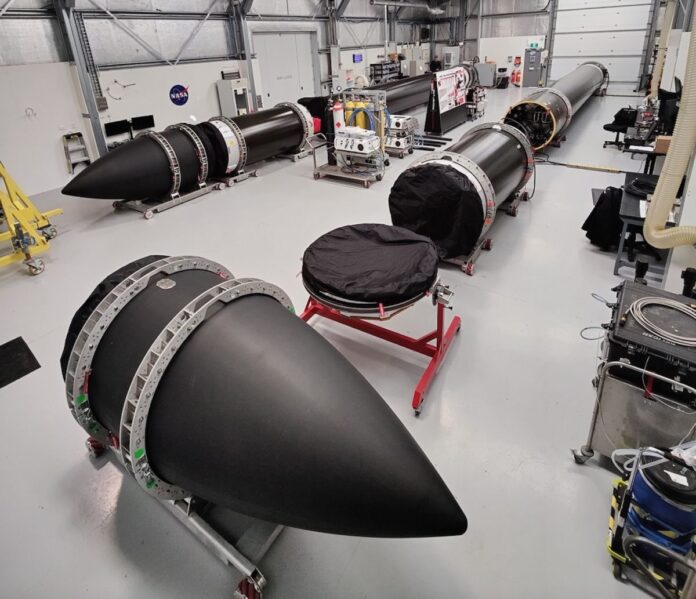Rocket Lab is preparing to launch four tiny NASA hurricane-studying satellites across two missions next month from the company’s Launch Complex 1 (LC-1) in New Zealand.
The two TROPICS (“Time-Resolved Observations of Precipitation Structure and Storm Intensity with a Constellation of Small Sats”) missions were originally slated to fly a bit later from the Mid-Atlantic Regional Spaceport at NASA’s Wallops Flight Facility in Virginia.
But the desire for the fleet to be operational for this year’s Northern Hemisphere stormy season led mission managers to pick an earlier launch date, Rocket Lab representatives said. The company was able to accommodate the shift by utilizing its New Zealand site.
Related: Rocket Lab launches 1st Electron booster from US soil in twilight liftoff
For the TROPICS constellation to function properly, all four satellites require deployment into a 30-degree orbital inclination at about 342 miles (550 kilometers) in altitude, all within the same 60-day period. Each Electron rocket will carry two of the smallsats, and will launch about two weeks apart — possibly as soon as May 1 New Zealand time (April 30 EDT).
The two launches have been dubbed “Rocket Like a Hurricane,” and “Coming to a Storm Near You,” according to an April 10 release (opens in new tab) from Rocket Lab. The TROPICS constellation quartet is part of NASA’s Earth System Science Pathfinder Program and will study the formation of tropical cyclones and hurricanes to help scientists improve predictive weather models.
“The need for improved climate and weather data from space is acute and growing. Hurricanes and tropical storms have a devastating effect on lives and livelihoods, so we’re immensely proud to be entrusted by NASA to launch the TROPICS missions which will enable scientists and researchers to accurately predict storm strength and give people time to evacuate and make plans,” Rocket Lab CEO Peter Beck said in the April 10 release.
Rocket Lab lists 35 completed missions on its website, making Rocket Like a Hurricane and Coming to a Storm Near You numbers 36 and 37. The space company has been making strides to convert Electron’s first stage booster into a reusable vehicle, and managed to catch a booster with a helicopter in May 2022. The company did not mention in its recent release whether the upcoming missions will be accompanied by similar recovery attempts.
These won’t be the first TROPICS satellites ever to lift off. Two TROPICS cubesats flew aboard an Astra rocket in June 2022 but were lost when the launcher failed.
Follow us on Twitter @Spacedotcom (opens in new tab) or on Facebook (opens in new tab).

